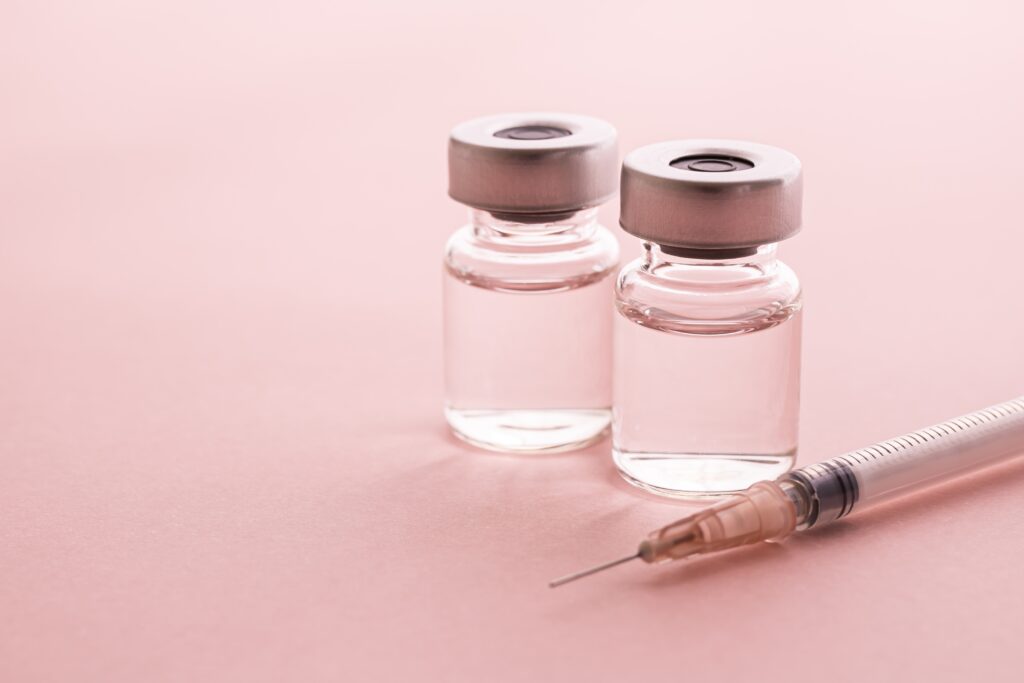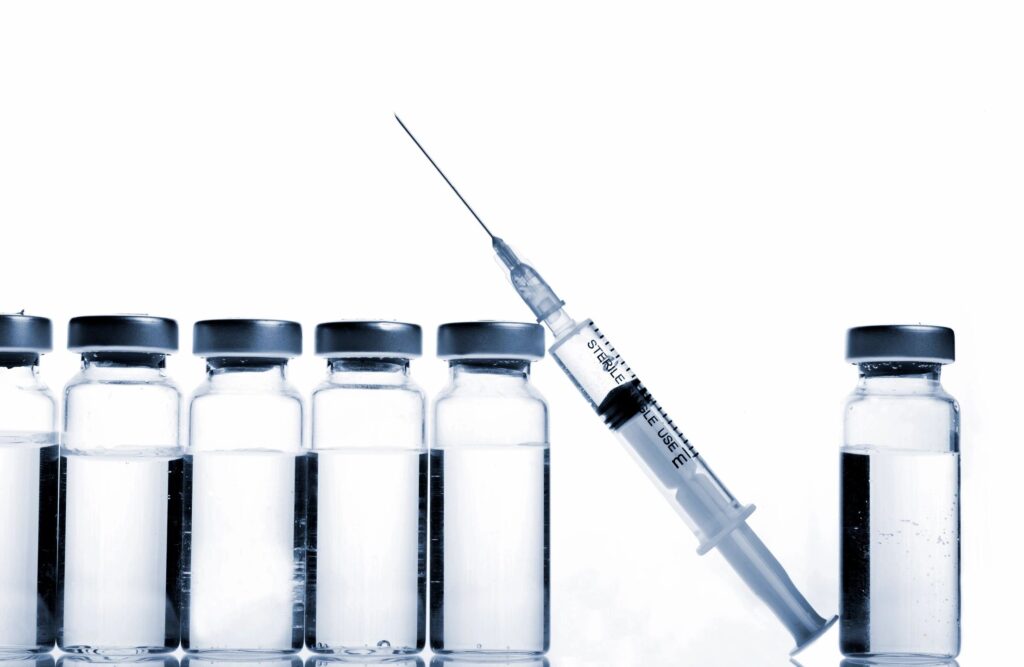Vitamin B12 Injections

Vitamin B12 is a water-soluble vitamin that plays a crucial role in many bodily functions. It is essential for maintaining healthy nerves, producing DNA and RNA, forming red blood cells, and supporting proper brain function. Unlike some other vitamins, the body cannot produce B12, so it must be obtained from dietary sources or supplements.
Key Functions:
1. Red Blood Cell Formation: B12 is vital for producing healthy red blood cells. A deficiency can lead to anemia, characterized by fatigue and weakness.
2. Nervous System Health: It helps maintain the protective covering of nerves (myelin sheath), supporting normal nervous system function.
3. DNA Synthesis: B12 is involved in synthesising DNA, making it essential for cell division and repair.
4. Energy Production: It plays a role in converting food into energy by aiding the metabolism of fats and proteins.
Sources:
• Animal-based foods: Meat, fish, poultry, eggs, and dairy products.
• Fortified foods: Some plant-based foods, like cereals or nutritional yeast, are fortified with B12.
• Supplements: Available in tablet, liquid, or injection forms, often recommended for people at risk of deficiency.

Deficiency:
Vitamin B12 deficiency can lead to:
Fatigue, weakness, and dizziness
Nerve damage (tingling or numbness in hands and feet)
Memory problems or difficulty concentrating
Mood changes or depression
Pernicious anemia, a condition caused by poor absorption of B12
Risk Factors for Deficiency:
Vegan or vegetarian diets (as B12 is primarily found in animal products)
Conditions affecting absorption (e.g., Crohn’s disease, celiac disease)
Age (absorption may decline with age)
Certain medications (e.g., metformin or proton pump inhibitors)
Vitamin B12 provides several health benefits by supporting essential processes in the body. Here’s how it helps:
1. Boosts Energy Levels
• B12 plays a critical role in converting food into energy by helping break down carbohydrates, proteins, and fats. A deficiency can lead to fatigue and low energy.
2. Supports Red Blood Cell Production
• B12 is necessary for creating healthy red blood cells, which transport oxygen throughout the body. Insufficient B12 can lead to anemia, causing symptoms like weakness and shortness of breath.
3. Promotes Nervous System Health
• It helps maintain the myelin sheath, a protective covering around nerves. This supports nerve function and prevents damage, which can cause numbness, tingling, or muscle weakness.
4. Enhances Brain Health
• B12 is important for cognitive function, memory, and mood regulation. It helps reduce levels of homocysteine, a compound linked to brain shrinkage, dementia, and Alzheimer’s disease when elevated.
5. Supports DNA and Cell Formation
• B12 plays a role in DNA synthesis, which is crucial for cell repair and division. This is particularly important for fast-dividing cells like those in the skin, hair, and nails.
6. Improves Mood
• B12 is involved in producing neurotransmitters like serotonin and dopamine, which influence mood. Low B12 levels are associated with depression and irritability.
7. Benefits Pregnancy
• Adequate B12 is crucial during pregnancy for fetal brain and nervous system development. Deficiency during pregnancy can lead to birth defects or developmental delays.
8. Lowers Homocysteine Levels
• High levels of homocysteine (an amino acid) are linked to heart disease and stroke. B12 helps metabolise homocysteine into other substances, lowering cardiovascular risk.
9. Strengthens Hair, Skin, and Nails
• By supporting cell production, B12 can help improve the health and appearance of hair, skin, and nails, especially in individuals with a deficiency.
10. May Aid in Sleep Regulation
• B12 affects the production of melatonin, the sleep hormone, potentially helping regulate sleep patterns.
Who Benefits Most?
People with a B12 deficiency will see the greatest improvements, as B12 supplementation restores normal levels and alleviates related symptoms. If your levels are normal, taking more B12 generally doesn’t provide additional benefits, as excess B12 is excreted through urine.

